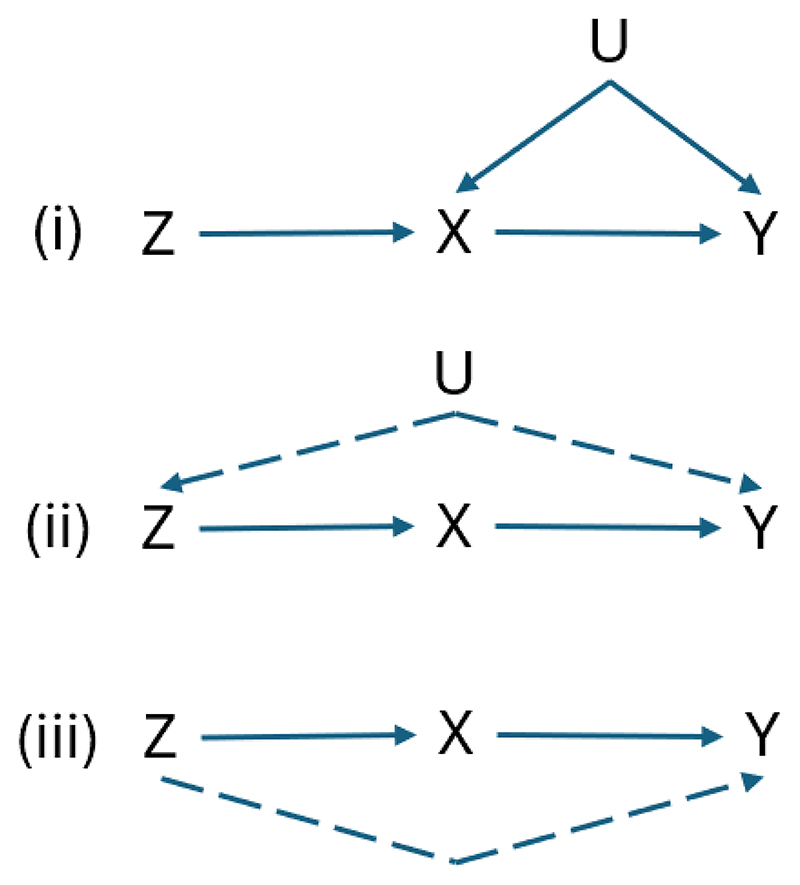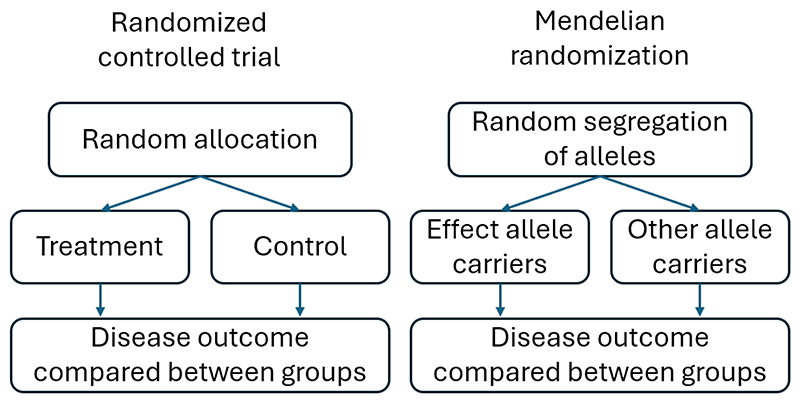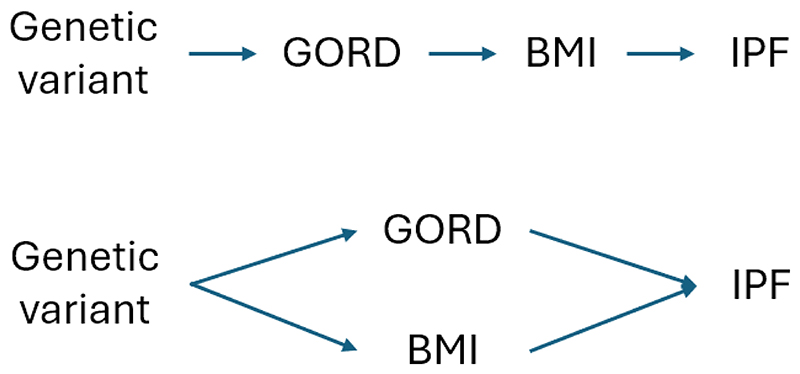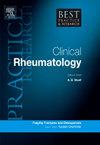使用孟德尔随机法评估风湿病可改变暴露的因果关系。
IF 4.8
2区 医学
Q1 RHEUMATOLOGY
Best Practice & Research in Clinical Rheumatology
Pub Date : 2024-12-01
DOI:10.1016/j.berh.2024.101967
引用次数: 0
摘要
孟德尔随机化(Mendelian randomization,MR)出版物的爆炸式增长令人难以忽视,而且没有放缓的迹象。临床读者可能对术语繁多的方法并不熟悉,他们需要从众多低质量的研究中辨别优劣,这些低质量的研究过于自信地声称存在因果关系,或者夸大了孟德尔随机研究的可信度。我们的目标是通过风湿病学中的实例为读者提供基本概念,使他们能够对期刊中正在或将要发表的众多磁共振论文进行评估。我们强调了评估暴露是否受到可信的特定遗传影响、假设的因果途径是否具有生物学意义以及结果是否经得起复制和使用对照结果的重要性。与任何设计一样,使用磁共振技术进行的研究质量可能会有很大差异,而且所有方法都有其固有的局限性。在证据三角测量的背景下,磁共振研究已经并仍能提供有价值的见解。本文章由计算机程序翻译,如有差异,请以英文原文为准。



Use of Mendelian randomization to assess the causal status of modifiable exposures for rheumatic diseases
The explosion in Mendelian randomization (MR) publications is hard to ignore and shows no signs of slowing. Clinician readers, who may not be familiar with jargon-ridden methods, are expected to discern the good from the many low-quality studies that make overconfident claims of causality or stretch the plausibility of what MR can investigate. We aim to equip readers with foundational concepts, contextualized using examples in rheumatology, to appraise the many MR papers that are or will appear in their journals. We highlight the importance of assessing whether exposures are under plausibly specific genetic influence, whether the hypothesized causal pathways make biological sense, and whether results stand up to replication and use of control outcomes. Quality of research can vary substantially using MR as with any design, and all methods have inherent limitations. MR studies have provided and can still contribute valuable insights in the context of evidence triangulation.
求助全文
通过发布文献求助,成功后即可免费获取论文全文。
去求助
来源期刊
CiteScore
9.40
自引率
0.00%
发文量
43
审稿时长
27 days
期刊介绍:
Evidence-based updates of best clinical practice across the spectrum of musculoskeletal conditions.
Best Practice & Research: Clinical Rheumatology keeps the clinician or trainee informed of the latest developments and current recommended practice in the rapidly advancing fields of musculoskeletal conditions and science.
The series provides a continuous update of current clinical practice. It is a topical serial publication that covers the spectrum of musculoskeletal conditions in a 4-year cycle. Each topic-based issue contains around 200 pages of practical, evidence-based review articles, which integrate the results from the latest original research with current clinical practice and thinking to provide a continuous update.
Each issue follows a problem-orientated approach that focuses on the key questions to be addressed, clearly defining what is known and not known. The review articles seek to address the clinical issues of diagnosis, treatment and patient management. Management is described in practical terms so that it can be applied to the individual patient. The serial is aimed at the physician in both practice and training.

 求助内容:
求助内容: 应助结果提醒方式:
应助结果提醒方式:


